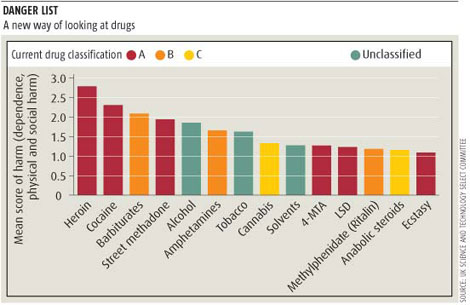Most of the more enthusiastic web developers worry me. In their wild-eyed enthusiasm for the latest, coolest technology they seem almost oblivious to wider or longer-term implications. Nick Bradbury, creator of FeedDemon, a popular RSS reader for Windows, had an interesting take on this recently.
Back in 2004, I asked: “What are we actually building here? A lot of people in my profession wear rose-colored glasses and believe we’re helping to make information free to the world, but some of the early proponents of television believed the same thing. Are we really just building the next version of TV, one even more powerful because it knows your name and shopping habits?”
I thought I was being cynical then, but now I’m not so sure. Google continues to carve out a huge share of the Internet advertising market, in large part by figuring out what we’re paying attention to. The quality of the content doesn’t really matter to them — only the number of eyeballs they can advertise to does. Sounds a lot like commercial TV, doesn’t it?
So far, has the Web been better than TV, or just more targeted? And is it really worth giving up so much privacy in order to get it?
One of the biggest changes facing society right now is a massive loss of individual privacy. And one of the best introductions to the issues is Simson Garfinkel’s book Database Nation.
Garfinkel is a leading researcher in computer forensics, so he’s well aware that “privacy on the Internet” isn’t really about your email address being used to send you spam — despite that being the focus of most website privacy statements.
As he says in Database Nation:
To understand privacy in [the 21st century] we need to rethink what privacy really means today:
- It’s not about the man who wants to watch pornography in complete anonymity over the Internet. It’s about the woman who’s afraid to use the Internet to organise her community against a proposed toxic dump — afraid because the dump’s investors are sure to dig through her past if she becomes too much of a nuisance.
- It’s not about people speeding on the nation’s highways who get automatically generated tickets mailed to them thanks to a computerised speed trap. It’s about lovers who will take less joy in walking around city streets or visiting stores because they know they’re being photographed by surveillance cameras everywhere they step.
- It’s not about the special prosecutors who leave no stone unturned in their search for corruption of political misdeeds. It’s about the good, upstanding citizens who are now refusing to enter public service because they don’t want a bloodthirsty press rummaging through their old school reports, computerised medical records and email.
- It’s not about the searches, metal detectors and inquisitions that have become a routine part of our daily lives at airports, schools and federal buildings. It’s about a society that views law-abiding citizens as potential terrorists, yet does little to effectively protect its citizens from real threats to their safety.
Actually, you could argue that privacy has already been lost — we just don’t realise it yet.
It’s now impossible to drive anonymously across the Sydney Harbour Bridge. Every mobile phone is a tracking device. Every web page you look at is logged by your Internet service provider. And a generation is recording every little detail of their lives in LiveJournal or MySpace or Facebook or whatever social media website will make all those look so last week.
My take on this?
Society will have to come to terms with the fact that everyone has skeletons in the cupboard — that joint they smoked, for instance. Roughly 1 in 7 of the men listed on birth certificates isn’t actually the father — but now routine DNA screening for diseases is uncovering uncomfortable bedroom secrets.
Many “bad” things are really quite common — they’re just not talked about. Our private worlds remain private. Or at least they used to.
We’ll have to get used to the idea that politicians, teachers, bus drivers — whoever! — are all flawed humans. We can’t ban those who smoked a joint or has “a history of mental illness” (depression affects 800,000 Australian adults a year) or committed a crime (copyright infringement is now a crime, you know) or there’ll be no-one left!
So long-term we might get a more tolerant society, with a more reality-based view of the world.
However in the shorter term I can see a decrease in tolerance. As new technologies reveal more of our hidden private worlds, people will be shocked to discover “all these criminals” and so on, and there’ll be a crackdown.
It could be an uncomfortable few decades.



